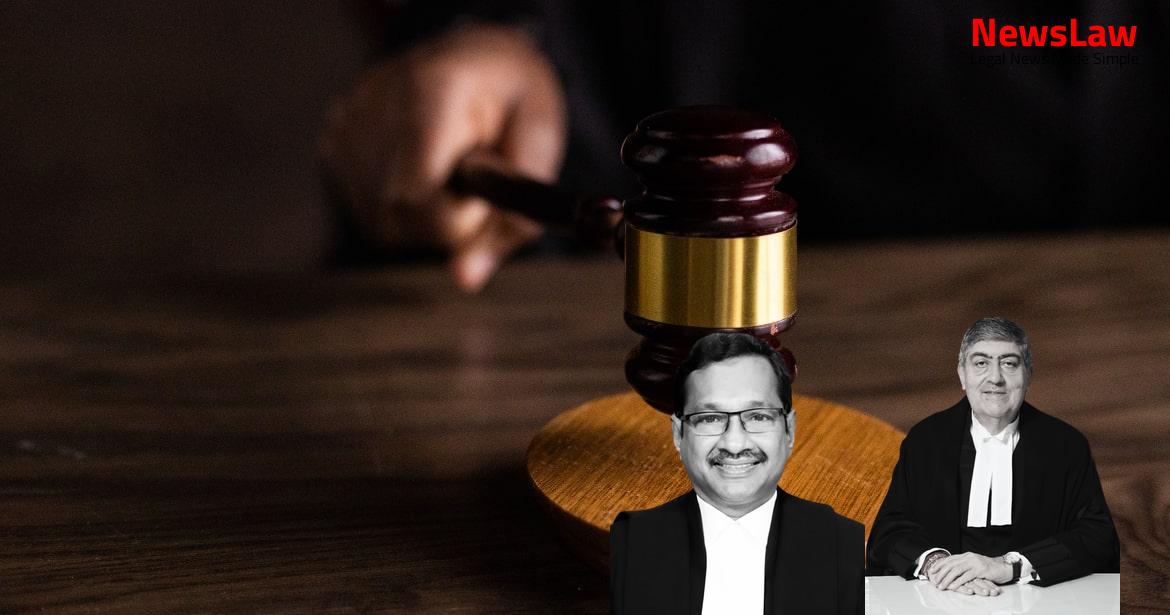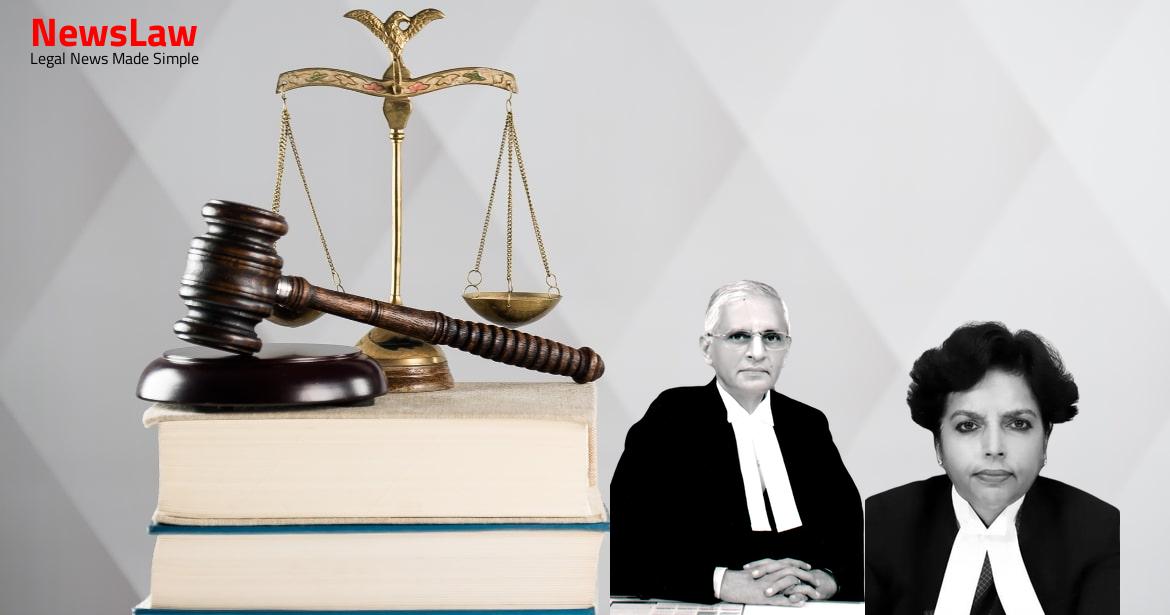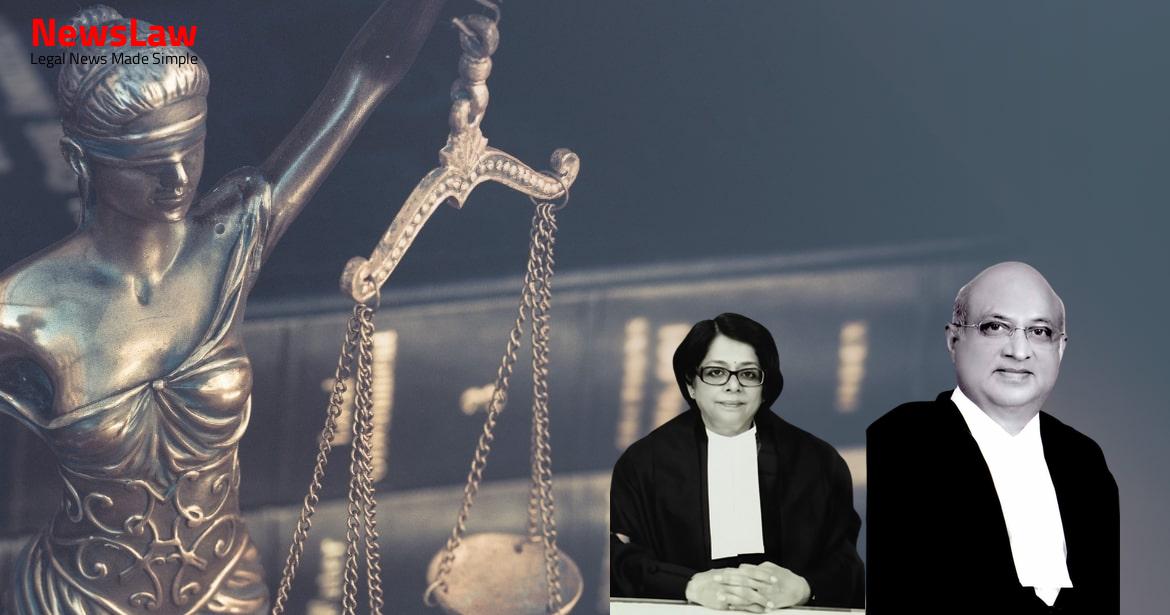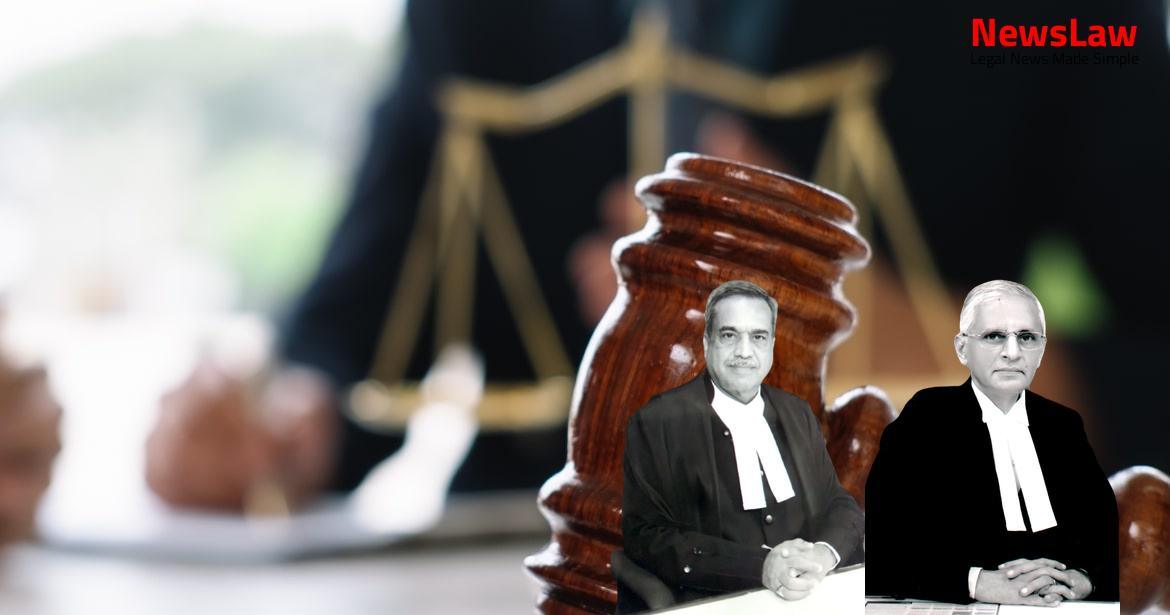Explore the pivotal role played by the court in meticulously evaluating witness testimony in legal proceedings. This blog sheds light on the significance of separating truth from falsehood, analyzing the credibility of witnesses, and the need for corroboration in evidence. The court’s duty to assess the reliability of testimony and draw adverse inferences for withholding material witnesses is highlighted, emphasizing the pursuit of truth in judicial proceedings.
Facts
- The High Court acquitted the appellants for the offence punishable under Section 307 IPC due to the unavailability of an injured witness, Om Prakash, who could not be secured for examination.
- Efforts were made by the courts to secure the witness, including issuing non-bailable warrants, but he did not appear for further deposition.
- The High Court convicted the appellants for life, while acquitting them for the offence under Section 307 IPC. One appellant’s case was remitted for reconsideration on the adequacy of the charge.
- The trial court’s conviction and sentence were modified by the High Court to impose a life sentence.
- During the court’s questioning under Section 313 of the CrPC, all accused denied the charges despite incrementing materials presented to them.
- Two persons were killed by multiple bullet injuries on 17.09.2004.
- PW-13, PW-2, and PW-3 are eye-witnesses to the case.
- FIR was registered by PW-7.
- Recovery from Accused No.3 was made from his wife’s custody at his house.
- PW-14 filed the final report for the charge under Section 25 of the Arms Act.
- Postmortem was conducted by PW-4 on the same day.
- Accused persons did not present significant witnesses.
- PW-1 lodged the FIR within an hour, being the nephew of one of the deceased.
- The motive behind the incident seems to be a prolonged election dispute between two groups.
- Seized articles were sent to the FSL and a report was received.
- PW-10, the police constable, took the arms to the laboratory.
Also Read: Supreme Court Judgment on Single Till Mechanism for HRAB Calculation: A Comprehensive Analysis
Arguments
- The appellants argued that the independent injured eye-witness, Om Prakash, was inexplicably screened by the prosecution.
- There is doubt raised on the version of the prosecution due to the recovery of an unrelated cartridge, casting suspicion on the case.
- The location of the cartridges near the bodies of the deceased raises questions about the manner in which the injuries were caused.
- There is concern over the considerable delay in receiving the FSL report, impacting the trial process.
- The evidence of PW-13 was not thoroughly cross-examined, raising doubts about its reliability.
- Legal precedents such as Gopal Saran v. Satyanarayana and State of Orissa v. Prasanna Kumar Mohanty were cited in support of the arguments.
- The relatedness and interest of the other two eyewitnesses in securing convictions were highlighted as a point of contention.
- The learned counsel for the State argued that both the trial court and the High Court adequately assessed the materials in reaching their conclusions.
- The fact that PWs-1 & 2 are relatives of the deceased does not automatically mean their testimonies should be disbelieved.
Analysis
- The court has the duty to assess the reliability of the testimony provided by witnesses, ensuring it is free from suspicion.
- Evidence given by a witness in a judicial proceeding is relevant for proving the truth of facts in a subsequent proceeding.
- The court classifies oral testimony into three categories: wholly reliable, wholly unreliable, and neither wholly reliable nor wholly unreliable.
- A witness turning hostile does not necessarily invalidate the entire prosecution case; the court can still rely on other evidence.
- If evidence is not wholly reliable, corroboration may be required, and contradictions can be considered.
- Cross-examination should be completed promptly, and delays can lead to prevarication by witnesses.
- The court must consider all matters and evidence before it to assess the existence of a fact.
- Quality of evidence is more important than quantity; credibility of a witness is crucial.
- Courts can draw adverse inferences against the prosecution for withholding material witnesses.
- In a fair trial, both defense and prosecution interests must be considered, and truth must be pursued by the court.
- The court’s assessment of witness testimony is based on the degree of probability and overall credibility of the evidence presented.
- The trial court plays a pivotal role in determining the credibility of witnesses and evidence.
- The court’s duty is to evaluate all evidence, including witness statements, to separate truth from falsehood, exaggeration, or improvements.
- Judicial proceedings should not be derided, and the onus is on the prosecution to present essential witnesses to establish its case.
- The court is granted discretion to assess witness reliability and determine the weight of their testimony based on facts and circumstances.
- A prudent man standard is applied in judging the existence of facts and the quality of evidence presented in court.
- Section 3 of the Evidence Act defines ‘evidence’ broadly into oral and documentary evidence.
- Evidence under the Act provides a degree of probability through logical inference to the existence of a fact.
- The Act considers a fact proved when the Court believes it to exist or finds its existence so probable that a prudent man would act upon the supposition that it exists.
- Similarly, a fact is considered disproved when the Court believes it does not exist or finds its non-existence so probable that a prudent man would act upon the supposition that it does not exist.
- Non-examination of investigating officer is not fatal to the prosecution case.
- The testimony of a witness is to be considered independent unless tainted by enmity or bias against the accused.
- Evidence of a hostile witness cannot be entirely discarded, relevant parts admissible in law can be used by prosecution or defense.
- In cases where factions prevail and murders occur due to enmity between factions, courts have to deal with partisan evidence.
- For sexual offenses or approver testimony, suspicion exists due to participation in crime, requiring careful scrutiny.
- Evidence must be weighed, not counted; quality of evidence is more important than quantity.
- No hard and fast rule on how much evidence should be appreciated, judicial caution is crucial.
- Close relatives not automatically considered untruthful witnesses, reason must be shown for partiality claims.
- Chance witnesses require careful scrutiny, their presence at the scene explained adequately.
- Legislature does not insist on a plurality of witnesses for proof of a fact.
- Evidence of an eyewitness closely related to the victim should be scrutinized but does not require corroboration for acceptance.
- Judicial approach has to be cautious in dealing with evidence of partisan or interested witnesses.
- Examination of the investigating officer becomes vital in certain circumstances.
- The court is concerned with the quality of evidence, not the quantity, for proving or disproving a fact.
- Conviction can be based on the testimony of a sole reliable witness if the evidence is trustworthy.
- Evidence of a chance witness must be carefully observed and enforced, with their presence at the scene explained adequately.
- Trial courts are adjourning cross-examination of private witnesses abruptly after chief examination.
- Long adjournments after chief examination benefit the defense by allowing them to influence witnesses over time.
- Trial courts should aim to complete examination of private witnesses on the same day, both chief and cross, as much as possible.
Also Read: Selection and Appointment of Judicial Officers in Himachal Pradesh
Decision
- Trial courts should examine private witnesses before official witnesses to address the menace effectively.
Case Title: RAJESH YADAV. Vs. THE STATE OF UTTAR PRADESH (2022 INSC 148)
Case Number: Crl.A. No.-000339-000340 / 2014



